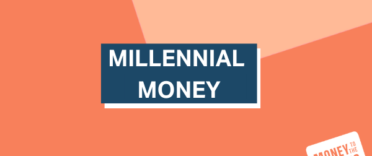UK house prices are unlikely to reach their pre credit crunch peak for five, possibly ten years, according to accountants PricewaterhouseCoopers.
While PwC expects a recovery in house prices in cash terms by 2015, adjusting for inflation it says there is a 70% chance that UK house prices will still be below peak 2007 levels.
In 2020, there is a 50% chance that house prices could be below 2007 levels.
House prices soared in the run-up to their 2007 peak. They then fell, but began climbing again quicker than expected. Only in the past few months have prices started to drop off again, with Halifax now reporting three straight months of declines.
PwC draws attention to the striking lack of uncertainty about house prices, ‘emphasising that housing is a risky asset that is not guaranteed to generate positive real returns in the future even though this has been the pattern in the past’.
John Hawksworth, head of macroeconomics at PwC, said: ‘The possibility of a renewed fall in house prices over the next few years, particularly in real terms, cannot be ruled out as mortgage interest rates start to rise again.'
PwC expects the economy to grow by around 1% in 2010 and 2.2% in 2011. This is less than the 1.2% this year and 2.3% in 2011 expected by the Office of Budget Responsibility. Hawksworth also stressed that there were risks to even this forecast and businesses should prepare for a double dip, even though it may not come to pass.
‘While it can be argued in theory that house price changes have little effect on overall UK wealth, our econometric analysis suggests that an unanticipated future fall in house prices could have a significant impact in dampening the speed of the recovery in consumer spending in the medium term,’ Hawksworth said.
(Source Citywire)
Money to the Masses view
I think that if people were realistic, rather than overly optimistic, they would have to admit that the immediate future for house prices is uncertain. So this story shouldn’t be news to most people. What PWC have done is put some figures to this viewpoint. Now while it makes good headlines to say that house prices will stall, PWC are only saying that there is a 50% chance of their prediction coming true. So the newspaper headlines could have easily read ''House prices might not rise for a decade, but then again they might do''.
But that wouldn't shift newspapers.
That aside, should you be concerned about this story? One thing this story does highlight is the fact that house price growth is not a one way bet, much like any other asset price. That's why looking at your home as a ‘safe investment’, or the basis of your pension when you subsequently downsize, is a risky thing to do.
But PWC are not actually saying that house prices will not rise in nominal terms, but that house price growth will be less than inflation. However, to put this into context, historically, since 1960, house prices have only increased in real terms (i.e. in excess of inflation) by around 2.8% per annum.
If the mystic megs at PWC are proved to be right then it could be good news for first-time buyers as their wages may have a chance to catch up with the housing market.
In any event if you don’t plan on moving , or remortgage, any time soon then the value of your home is largely irrelevant. And for those on a repayment mortgages, by the time 2020 comes along the equity content in your current house should be significant. Which means while your ability to afford a larger mortgage has increased (assuming your earnings have gone up), the price of your dream house won’t have spiralled out of reach. In fact in real terms it has become more affordable. Couple this with the extra equity you would have to play with, from your current home, your dream may be easier to achieve.
Personally I think that your home is exactly that, a place to live. Viewing it as a way of getting rich is, in my opinion, flawed. But I will come back to this another day.





